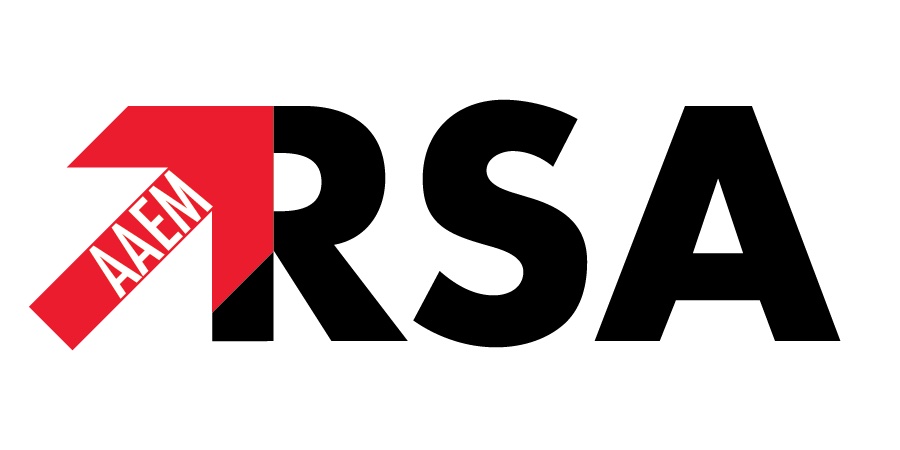 |
| Image Credit: Common Sense |
Author: Ashely Alker, MD MSc
AAEM/RSA 2017-2018 President
Whether it is Women in EM (WiEM), AWAEM, FeminEM or Shemergency, women in emergency medicine are uniting to advance shared goals, including equal pay and access to leadership opportunities. This comes at a time when women across many disciplines, from Hollywood actors to D.C. politicians, are standing up against inequality.
Women have been undervalued since before they entered the workplace. A Washington Post article determined that the value of a homemaker’s labor is equivalent to an annual salary of $96,261.[1] This is not an inconsequential sum, as the United States Census Bureau quotes the median household income as $55,322.[2] Meanwhile, a woman with an advanced degree earns $65,000, which is $30,000 less than the median income of a man with the same degree.[3]
Today, the reality is that despite 75% of the health care labor force being women, only 26% of hospital CEOs are women.[4] Moreover, a 2016 survey of Fortune 500 health care companies showed women make up only 21% of executive roles and 21% of board members.4 Men and women are far from equal in the workplace.
It is essential to recognize and overcome the insidious sentiment that opposes true gender equality: fear. For example, one may fear that increased women in leadership roles means that men must lose leadership opportunities. And from a place of fear come falsehoods concerning men being superior leaders to women.
A recent Critical Care Medicine Article, “Influence of Gender on the Performance of Cardiopulmonary Rescue Teams,” exemplifies this false narrative. This article concludes that female code leaders did not perform as well as male code leaders. A critical care powerhouse team across three specialties from the University of California, San Diego, including emergency medicine’s Radhika Sundararajan, MD PhD, wrote a forceful rebuttal. The rebuttal evaluated the study’s serious systemic flaws, including the use of medical students with no code experience as code leaders, and equating assertiveness with leadership. Cognizant of the repercussions from bad research linking vaccines and autism, we must be critical of all research-drawn correlations, especially those which propagate negative stereotypes.
It is important to acknowledge we still live in a patriarchal society, from the simple convention of a woman taking a husband’s last name to the male predominance in our leadership. We are assigned our gender roles and without realizing it, we become accustomed to sexism. However, recent events, including the social media #metoo and #dresslikeawoman campaigns, demonstrate that our society is demanding a new normal. The most qualified candidate should get the job, but this necessitates open access resources and opportunities to bring forward the most competent candidates from all backgrounds. This is the philosophy of emergency medicine gender equality guru, Dara Kass, MD FAAEM.
Sceptics Guide to Emergency Medicine (SGEM) deemed 2017 the year of females in emergency medicine, with the number one slot going to Dara Kass, MD FAAEM, the driving force behind FeminEM. One of the crowning achievements of FeminEM being the FeminEM Idea Exchange (FIX conference), held October 2017 in New York City. The RSA Diversity and Inclusion Committee was excited to host the resident networking coffee hour event at FIX. The FIX conference boasted speakers from many backgrounds, enthusiastically including men. Talks highlighted overcoming imposter syndrome, leadership, finance, branding, maternity leave, and mentorship.
RSA’s podcast also interviewed Dr. Kass, who stated FeminEM was created because there was, “no place to park the issues related to women in emergency medicine consistently that was not governed by an overarching organization.” When Dara Kass speaks about equality, she purposefully includes both men and women in the discussion, stating that one of her worst days in academic medicine was “seeing my resident at work 24 hours after his wife gave birth and their baby was under bili lights.” Dr. Kass calls for options-based solutions for both men and women. “There is no right way to be a physician. Anyone can choose to be at home or at work, but the decision should be yours.” What is Dr. Kass’ ultimate goal for the FeminEm organization? “For there to be no need for it to exist.” Because that means we are truly equal.
RSA has many opportunities for you to support equality in emergency medicine through our Diversity And Inclusion Committee, and the Women in EM (WiEM) Committee. Or, just start by listening to our FeminEM podcast with trailblazer, Dara Kass, MD FAAEM. The next FeminEM FIX conference will take place October 16-18, 2018, in New York City.
References:
1. D’Arcy, Janice. “A Homemaker’s Real Salary.” The Washington Post, WP Company, 1 Feb. 2012, www.washingtonpost.com/blogs/on-parenting/post/a-homemakers-real-salary/2012/02/01/gIQAh7czhQ_blog.html?utm_term=.037d5ce26f63.
2. Bureau, US Census. “Search Results.” Results, 18 Apr. 2015, www.census.gov/search-results.html?q=medain%2Bhousehold%2Bincome&search.x=0&search.y=0&search=submit&page=1&stateGeo=none&searchtype=web&cssp=SERP.
3. Generational Earnings and Education. Unites States Census Bureau, 3) https://www.census.gov/content/dam/Census/library/visualizations/2016/comm/cb16-203_graphic_earnings_education.pdf.
4. Castellucci, Maria. “Inequality in the C-Suite Has Gotten the Attention of Healthcare Organizations Looking to Diversify.” Modern Healthcare, 25 Feb. 2017, www.modernhealthcare.com/article/20170225/MAGAZINE/302259983www.modernhealthcare.com/article/20170225/MAGAZINE/302259983.
